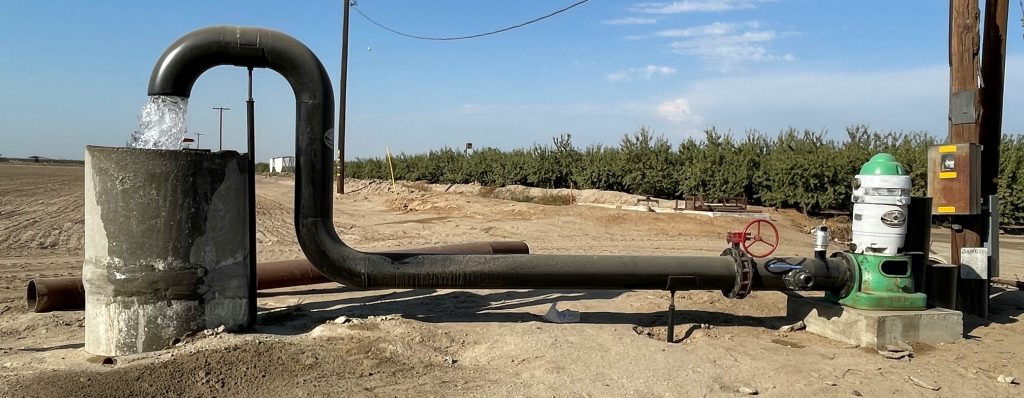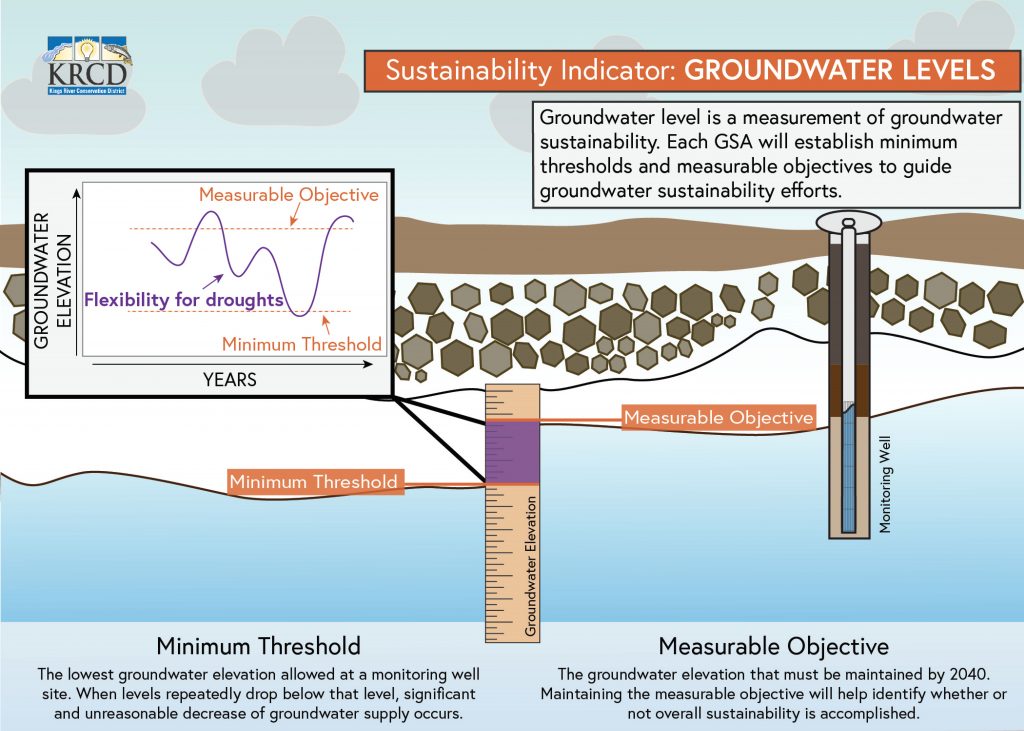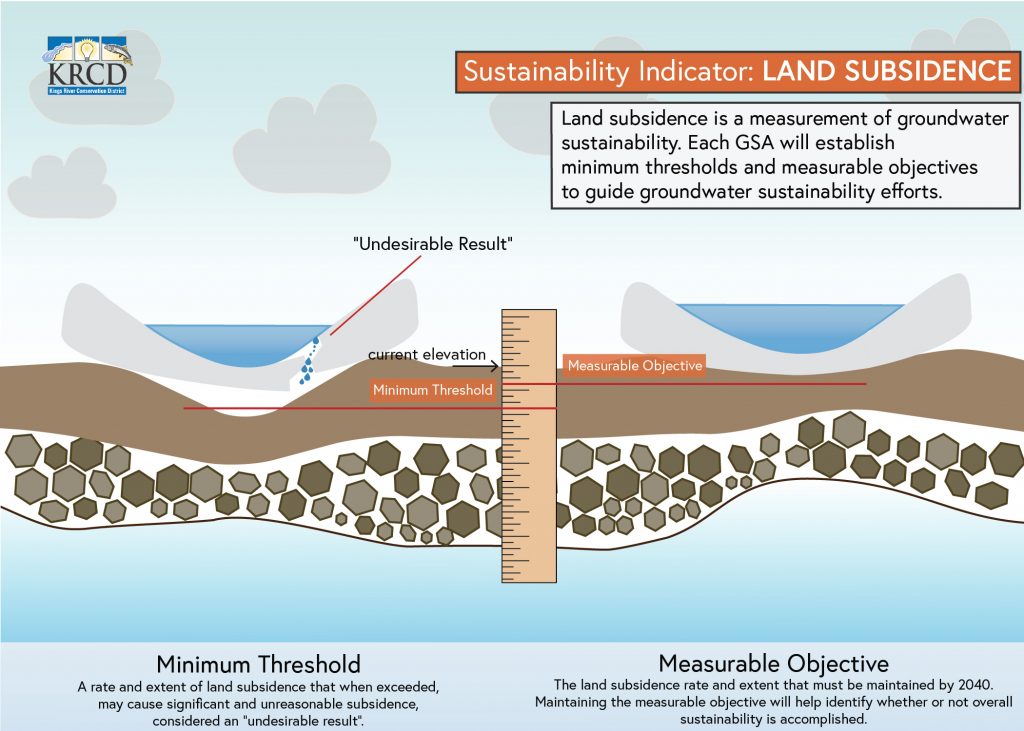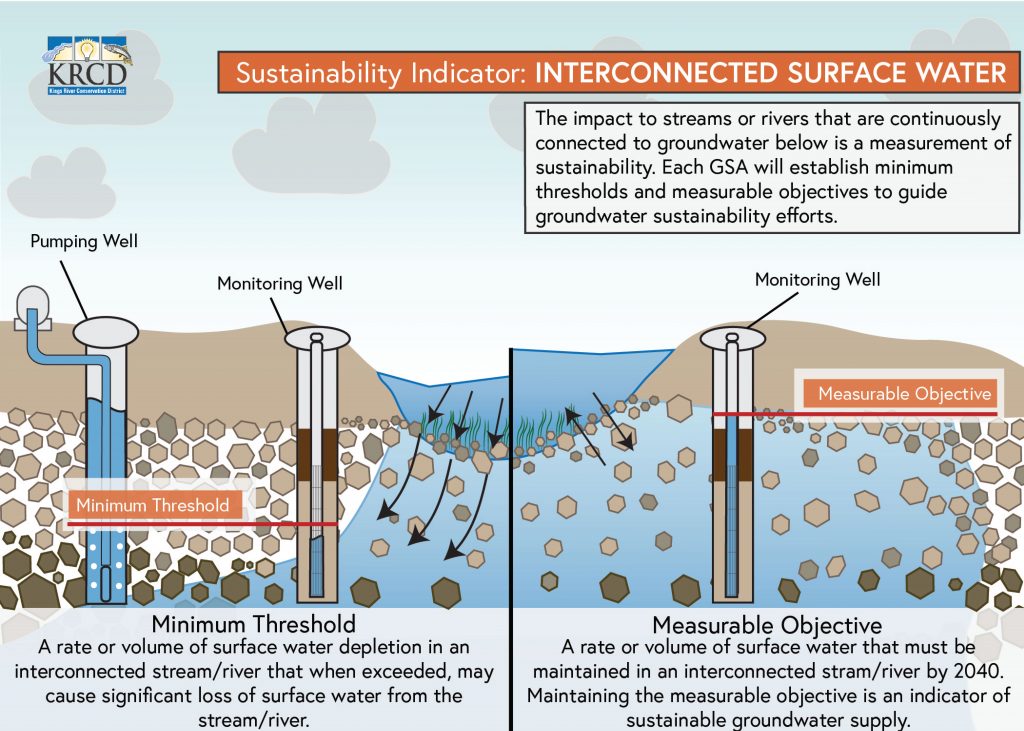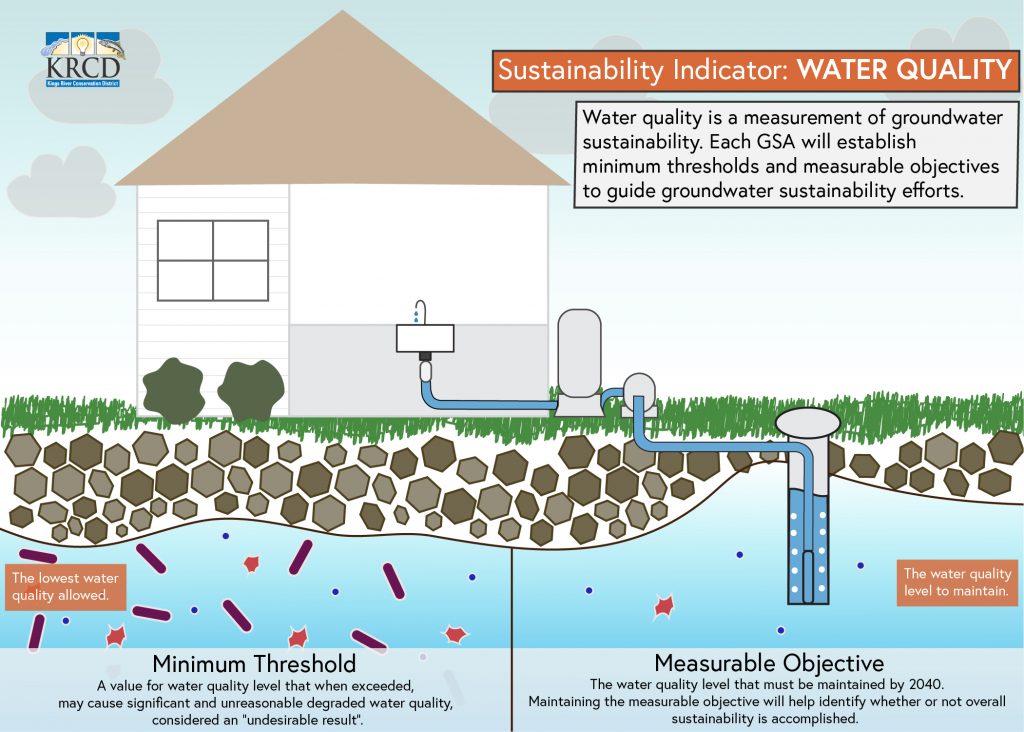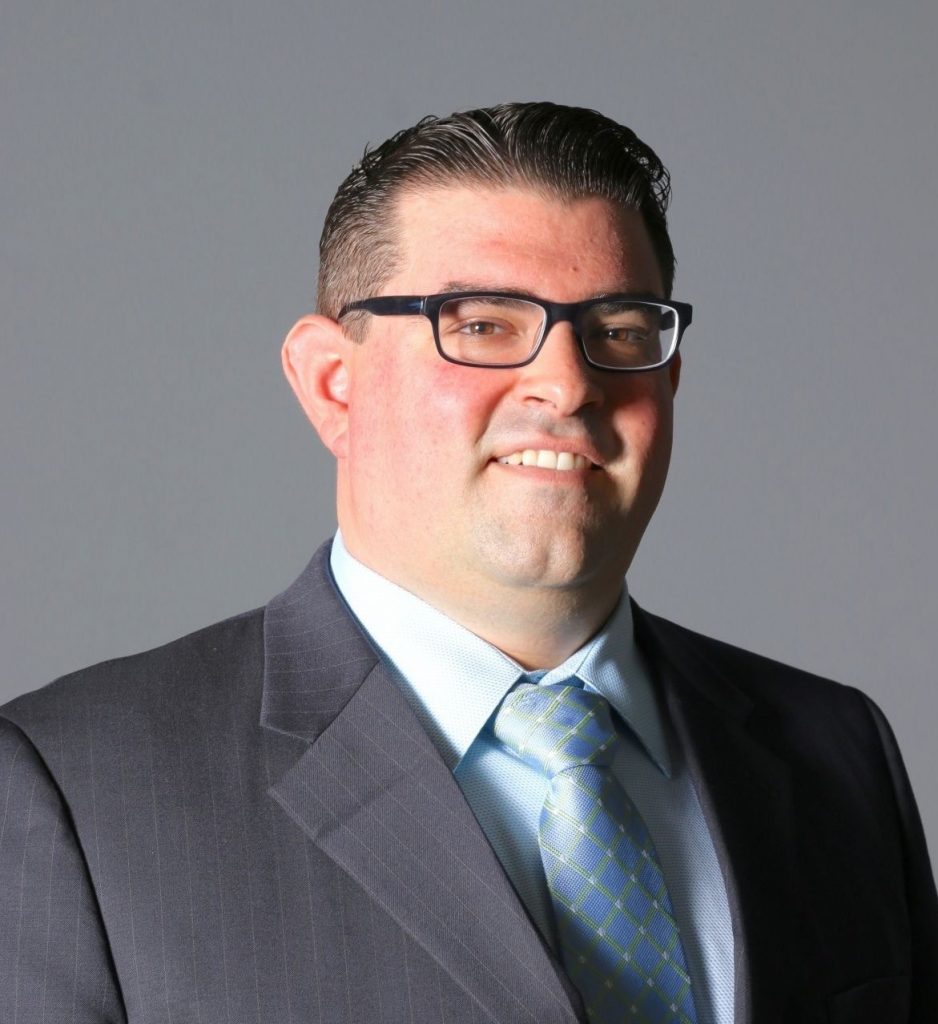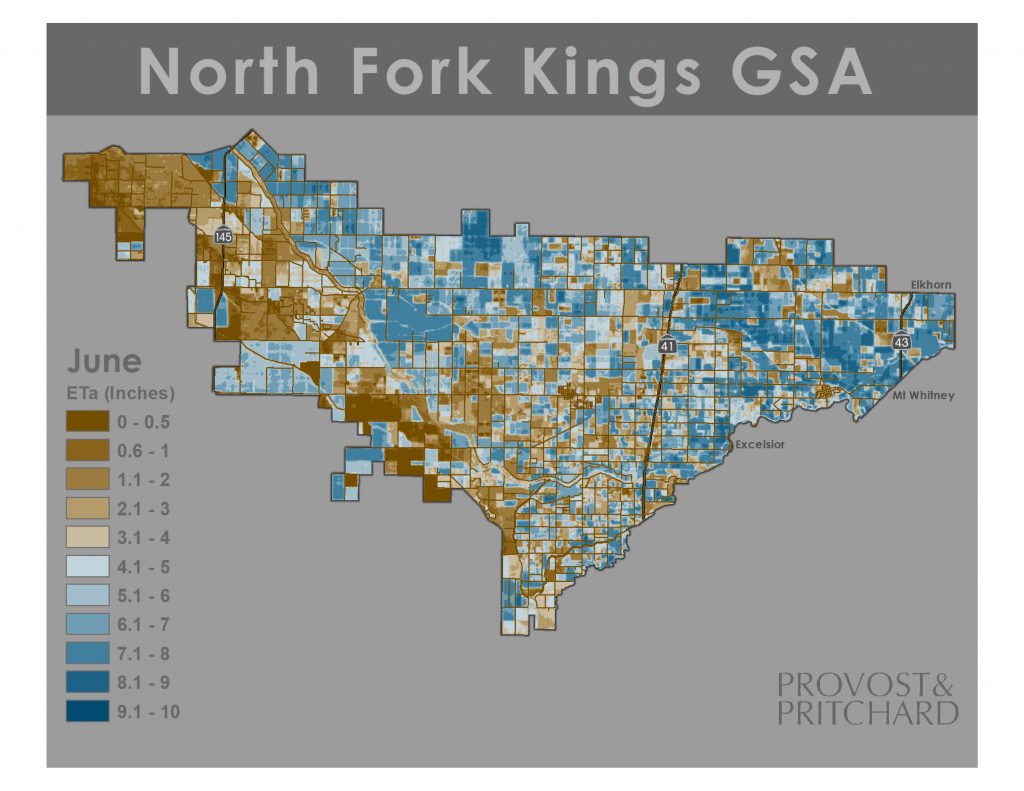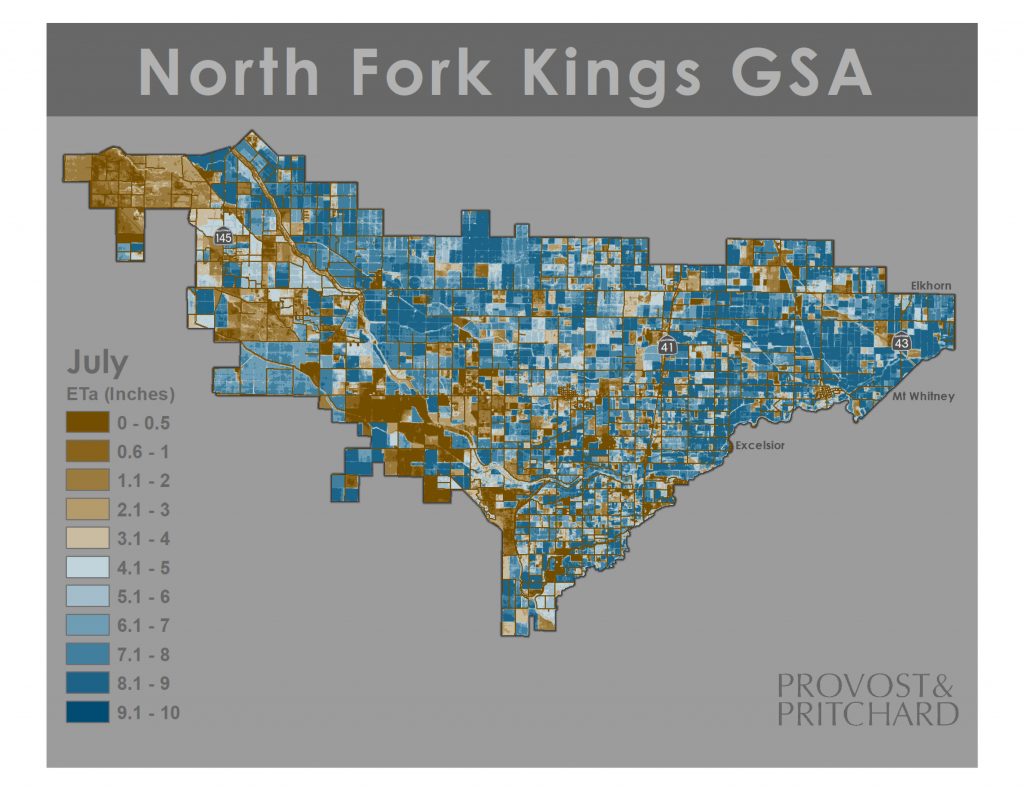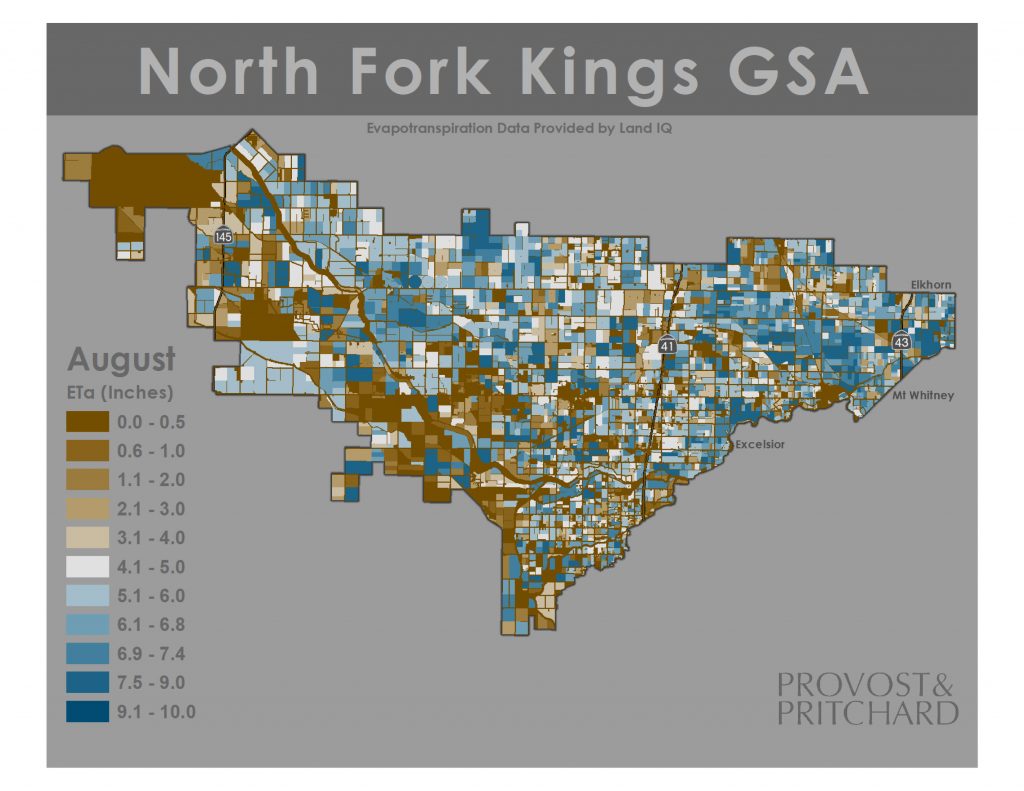California flipped from dry to wet. The Kings Subbasin is capitalizing, recharging the aquifer to recover from drought period losses identified in the latest Annual Report.
The Kings Subbasin strategy to build recharge basins during the drought is paying off as it captures additional surface water for recharge during this historic wet year.
Water managers in the Kings Subbasin are moving with urgency to recharge the groundwater aquifer during what could amount to be the Kings River’s largest water year ever. New recharge basins built through the previous drought period have been filled for the first time with surface water flows to help replenish the aquifer following multiple water years with groundwater storage loss.
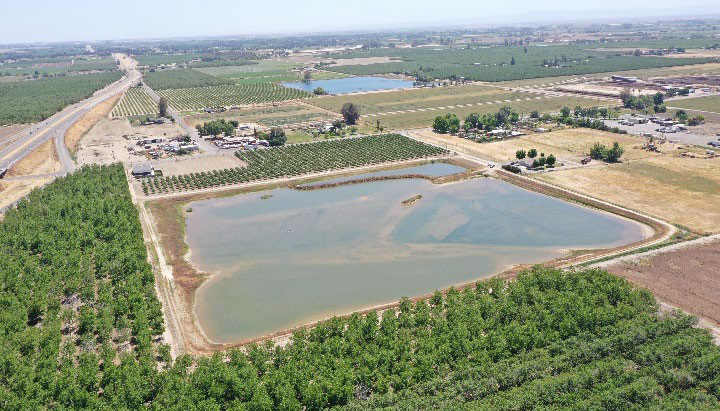
Surface water deliveries in the Kings Subbasin are projected to reach an estimated 1.8 million acre-feet this year, enough water to fill up Pine Flat’s 1-million-acre-foot reservoir nearly two times. The golden opportunity to capture as much water as possible is not lost on the Kings Subbasin. In fact, local water managers have been planning for it.
Since 2020, the seven Kings Subbasin Groundwater Sustainability Agencies (GSAs) and their members have collectively invested in 600 acres of prime groundwater recharge land to construct 15 dedicated recharge basins yielding over 15,000 acre-feet of new recharge capacity annually. This is in addition to the network of existing basins throughout the region that have been used to replenish groundwater supply for decades.
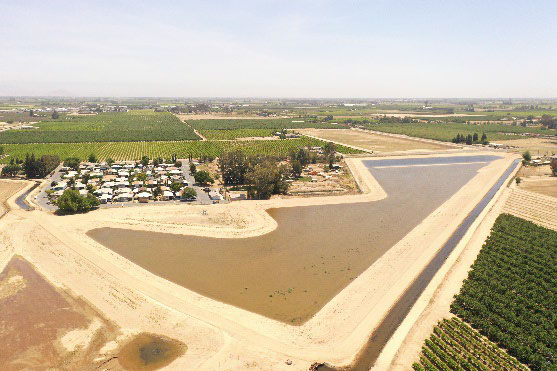
The nearby Consolidated Irrigation District in Central Kings GSA has recharged an estimated 160,000 acre-feet since February. Phil Desatoff, General Manager, expects the district will be able to recharge through October to put 320,000 acre-feet of water back into the ground.
As of April, the Laguna Irrigation District in the North Fork Kings GSA has recharged 10,000 acre-feet. General Manager Scott Sills expects to recharge around 6,000 acre-feet per month moving forward, and forecasts nearly 60,000 acre-feet will be recharged within the district.
Beyond just basins, many of the Kings Subbasin agencies have encouraged landowners to take part in groundwater sustainability through On-Farm Recharge. McMullin Area GSA to the west just wrapped up a pilot of On-Farm Recharge University, “OFR-U”, specifically designed to train growers into becoming confident recharge practitioners. Fresno ID received a grant from USDA Natural Resources Conservation Service to launch its Groundwater Recharge Pilot Program for growers to get funding for doing recharge on their farm.
With an emphasis on recharge, the Kings Subbasin is progressing toward groundwater sustainability off the heels of several dry years. The region’s latest SGMA Annual Report estimates 680,000 acre-feet of groundwater storage reduction occurred during the 2022 Water Year (October 1, 2021 – September 30, 2022) illustrating the real impacts of drought on groundwater supply. Kings River deliveries were 47% of normal totaling 529,000 acre-feet, a stark contrast to the extreme precipitation this year.
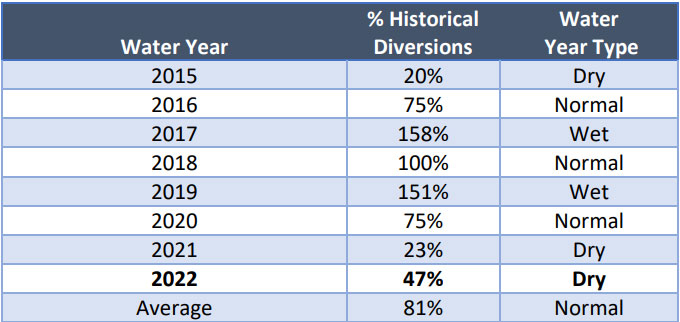
Kings Subbasin Water Year Type (2015 – 2022)
Kings Subbasin Annual Report Table 2-1
Drought comes as no surprise; the Groundwater Sustainability Plans (GSPs) outlining sustainability objectives accounted for fluctuations between dry and wet periods. The Kings Subbasin leaders remain hopeful that groundwater storage will begin to rebound thanks to the increasing network of recharge locations to capture the massive amounts of Kings River snowmelt for direct groundwater recharge.
It will take time, patience, and still more recharge to recover the aquifer from the last 3 drier years, but the Kings Subbasin is on track to make it happen.

